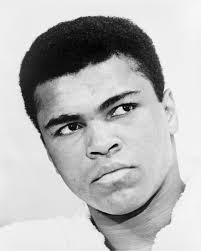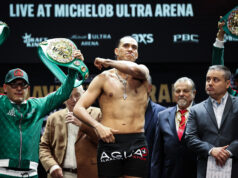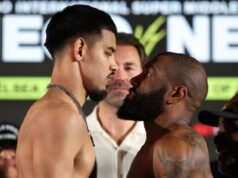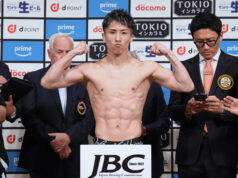
By Norm Frauenheim-
Games don’t matter much, at least they haven’t throughout about a relentless pandemic. Only the platform does. The NBA took its game off the floor and out of the bubble this week to protest the police shooting of Jacob Blake in Kenosha, Wisconsin.
It was the right thing to do.
It would have been too easy to just move on through playoffs in a season that has felt artificial. Fans are missing. So is much of the fun. There was a title at stake and still will be if the playoffs resume. But will anybody remember the eventual winner? Probably not.
What will be remembered is the way the NBA used its so-called platform to take a stand against a summer full of racial unrest. What was forgettable became memorable, thanks to the Milwaukee Bucks-led walkout Wednesday. Not everybody agrees, of course. That’s what also makes the NBA’s fast-break move from diversion to relevance so controversial.
Politics and sports aren’t supposed to mix, or so goes the argument from those who think anyone with athletic talent surrenders their right to speak out. But tell that one to generations of athletes.
Tell it to Olympic sprinters Tommie Smith and John Carlos, who flashed the black-power slate while standing on the 1968 Mexico City medal stand as though it were a bully pulpit.
Tell it to Jackie Robinson.
Tell it to Jack Johnson
Tell it to Muhammad Ali.
Of all of them, Ali has become the historical face of protest. He’s the loud voice that sums up the reasons athletes sometimes have to use their sport and stardom as a megaphone. Ali’s sport, boxing, is an appropriate setting. As a symbol, there’s nothing quite like the ring, which is something that politicians use all the time. They talk about heavyweights and lightweights. They love to talk about in-fighting and how they fight off-the-ropes. They’ll also tell you not to confuse sports and politics.
It’s good to hear LeBron James and Los Angeles Clippers coach Doc Rivers say otherwise. Rivers attacked Donald Trump and his bucket guy, Mike Pence. The President and Vice-President talk about violence in the cities and fear in the suburbs.
“All you hear is Donald Trump and all of them talking about fear,’’ Rivers said Tuesday after a Clippers victory over Dallas. “We’re the ones getting killed.’’
Rivers’ comment made me think of Ali.
“You’re my opposer when I want freedom, you’re my opposer when I want justice,’’ he said when he changed his name from Cassius Clay to Ali and had his heavyweight title stripped for refusing to be drafted during the Vietnam War “You’re my opposer when I want equality.
“You won’t even stand up for me in America for my religious beliefs and you want me to go somewhere and fight, but you won’t even stand up for me here at home.”
During the turbulent 1960s, it was a powerful statement for a fighter who could be as cruel as he was cocky. But there was never much doubt about his timing on either side of the ropes in a battered craft that is and always will be what Mike Tyson has called it: The hurt business.
Ali knew when to jab. Knew when to counter.
Mostly, he knew when to take a stand. There’s always been an argument about where he stands among the all-time fighters. Even among the heavyweights, there’s a fair enough debate over who was the GOAT. Some say Joe Louis. Some say Ali.
But there’s never been much debate about who has had the greatest overall impact. George Foreman, stopped by Ali in 1974’s legendary Rumble In The Jungle, once told me that Louis was a better heavyweight, but that Ali was the better man.
The best ever.











